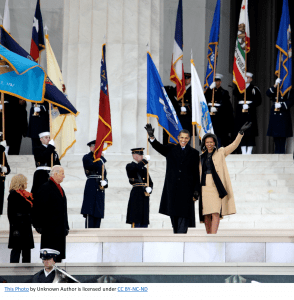One concept I found interesting was the Leadership Loop (Maxwell, 2013), a helpful tool to keep in mind when attempting to lead across. It explains how becoming a true leader is a long process. It explained a mistake that many aspiring leaders make: attempting to gain influence too quickly. There are seven stages of the Leadership Loop: caring, learning, appreciating, contributing, verbalizing, leading, and winning. I picked this because a leader will not just be with the people they lead: they will likely encounter other leaders as well, such as other department leaders within your company. In my opinion, a good leader will not just know how to lead people under them, but also be able to work with and lead other leaders as well. Following and completing the Leadership Loop (Maxwell, 2013) would be very useful if you are not at the top of your organization or group, and are in the middle, where there are likely other people in the middle trying to lead as well. The Leadership Loop (Maxwell, 2013) relates to TALONS because you must lead yourself through your education, but also communicate with your peers. An example of where this would have been useful was the cultural event planning for my event, where everyone was split up into pairs that were responsible for different aspects of the event. Since we were all still planning for the same event, we had to communicate to each other about our progress and relevant information. This furthers my leadership skills because being at the very top of an organization is rare, and there are usually many leaders in the middle of the organization in different departments, and it is essential to be able to work with the other leaders in your organization for not only you to be successful as a leader, but for the organization to be successful as a whole.
Another concept I thought would be useful is seeing everyone as a “10” (Maxwell, 2013), a concept of “leading down” (Maxwell, 2013). This means seeing people as who they can be, not who they are now and believing in them. It also includes giving them second chances when they make a mistake, recognizing their strengths, and realizing that people have many different strengths, and that being a “10” can have many meanings. John Maxwell wrote that “A 360° leader gets more out of their people because they think more of their people. It means not judging your people by their flaws, but by their strengths, and recognizing their potential. If you believe in who they can be, then it is more likely they will realize their potential and try their best when working for you. This relates to TALONS because when working with your peers, you will realize that they all have different strengths. If you judge them based on their weaknesses, you will never successfully work with them, and only become frustrated. However, if you see them as a “10”, you can help develop their skills so they can become more productive, and they will respect you as a leader as well. Also, by recognizing their strengths, you can give them a task that they are suited for and create a better result for whatever event you are planning or whatever project you are creating. This furthers your leadership skills by teaching you to recognize your peoples’ strong suits, which you can use to your advantage; and also by teaching you to not judge people by their flaws, which will allow you to help develop their skills instead of becoming frustrated with them, and also being a more likable leader.
The third concept I have decided to write about is “lightening your leader’s load” (Maxwell, 2013), and is a part of “leading up” (Maxwell, 2013). It describes ways to help your leader with their responsibilities and gain their trust and respect, such as handling your own responsibilities first, providing solutions when reporting problems, telling your leader what they need to hear, not what they want to hear (Maxwell, 2013), standing up for your leader when possible, and asking your leader how you can help. This teaches you how to ease your leader’s burden so they will be more willing to help you, and so the organization thrives. When the leader of an organization thrives, the organization is more likely to prosper, as the person making the largest decisions for the organization, the leader, is not as stressed. This relates to TALONS by teaching you how to be responsible for yourself and how to help the leader of your group. This would help during group projects because instead of finishing your work and stopping there, you would continue to help the group by helping the leader and gaining their gratitude and establishing a relationship with them. This furthers your leadership skills by teaching you a way to establish a connection with your leader and helping the leader and your organization at the same time. Because of your relationship with your leader, you can more easily move up through the ranks and gain more experience leading.


